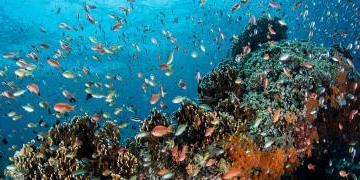One Ocean Hub Development Workshop
The complex challenges raised by ocean sustainability call for the creation of a diverse and inclusive community of researchers to allow for the broadest possible range of perspectives and scientific opinions to be explored. It is becoming increasingly evident that collaboration across the natural and social sciences needs to be strengthened, with a view to producing pragmatic and action-oriented recommendations for policy-making. In response to this need, the Strathclyde Centre for Environmental Law and Governance (SCELG) held the ‘One Ocean Hub Development Workshop’, a two-day event (30 April – 1 May) that sought to strengthen ties and foster partnerships between marine experts spanning disciplines and geographic regions.
The workshop brought together researchers engaging with the blue economy, integrated coastal and marine management, the protection of the marine environment, marine science and technology, and the law of the sea, to discuss how to tackle threats to ocean health and related challenges for sustainable development. The event took as its starting point the outcome document of the 2017 UN Ocean Conference, titled ‘Our Ocean, Our Future: Call for Action’, and the interdisciplinary research findings coordinated by SCELG on Sustainable Development Goal 14 (‘Conserve and sustainably use the oceans, seas and marine resources’), which have been published in a special issue of Marine Policy on ‘SDG synergies for sustainable fisheries and poverty alleviation’.



